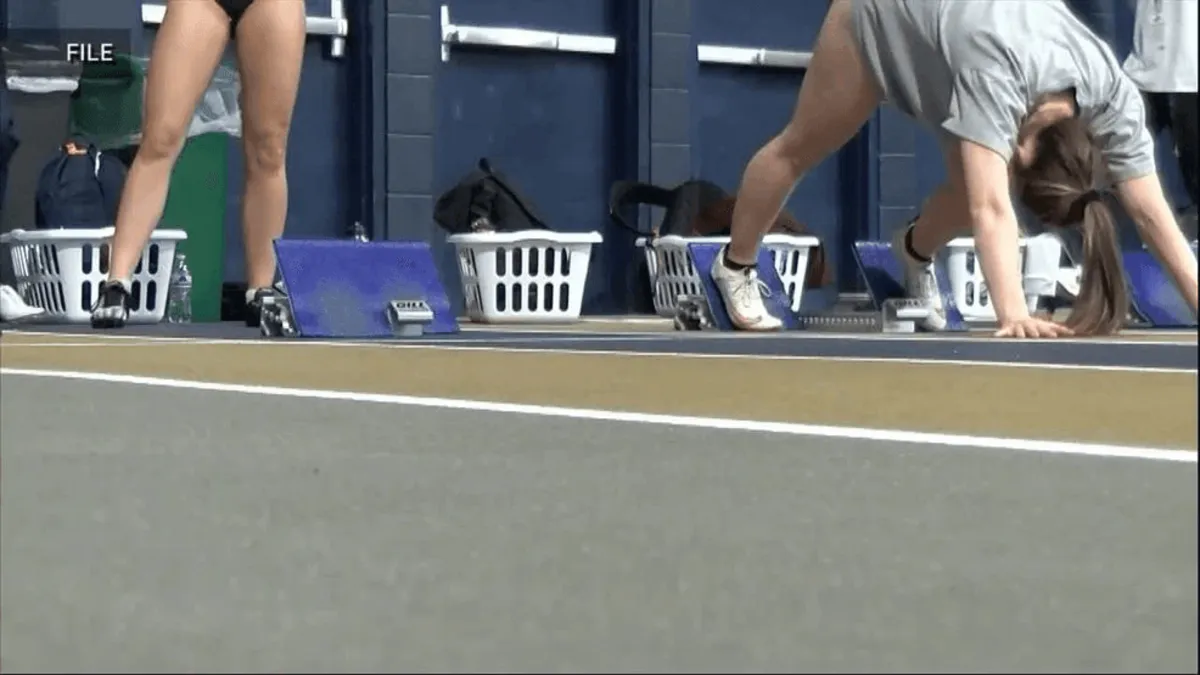
The Fairness in Girls' Sports Act, a bill supported by Republican lawmakers, is currently facing significant challenges in the Maryland Senate. As it prepares for a crucial committee hearing this week, the legislation—officially known as Senate Bill 588—aims to mandate that athletes participating in interscholastic and intramural junior varsity and varsity sports compete based on their biological sex rather than their gender identity. Despite its introduction, the bill is struggling to gain the necessary support to advance.
Senator Justin Ready, a Republican representing Carroll and Frederick Counties, is a co-sponsor of the legislation and has voiced his strong support for the bill. Speaking on Monday, Ready emphasized the need to protect female athletes in sports, stating, “I think we need to protect our girls in sports.” He further urged, “Let’s not play politics with our sports, with our young ladies and our young men and their athletic endeavors. Let’s just be sure that we have boys competing with boys and girls competing with girls.”
Ready highlighted the perceived unfairness of allowing athletes to compete based on their gender identity. He remarked, “I’m not going to say that every person that does this is a bad person. But, it is clearly not fair. It is clearly a disadvantage athletically and it’s also, frankly, it’s just not right.”
The House version of the Fairness in Girls' Sports Act was previously voted down in committee, indicating the uphill battle it faces. Despite this setback, Delegate Kathy Szeliga, a Republican from Baltimore County and the bill's sponsor, remains resolute in her efforts to advance the legislation. She stated on FOX45 News, “There’s a lot of momentum for this issue. Yes, the battle is far from over. We know that 23 states have already passed this bill. A few others have dealt with it through regulation and through their boards.”
Opponents of the Fairness in Girls' Sports Act, including Lee Blinder, Executive Director of Trans Maryland, argue that the legislation is inherently discriminatory. Blinder asserted, “I think when we talk about this issue we want to see equity in sports and that means participation along the identified genders.” He further compared the issue to racial equity, stating, “Just like with race, we don’t have black and white folks, we have a spectrum of race, so gender is also a spectrum.”
In response, Ready contended, “Well, the people being discriminated against are the girls who have had to fight for generations to get to the point where we are now.” This back-and-forth highlights the deep divide between supporters and opponents of the bill, raising important questions about equity and fairness in sports.
As the Fairness in Girls' Sports Act approaches a hearing in the Senate's Education, Energy, and Environment Committee this Wednesday, its future remains uncertain. The outcome of this hearing could significantly impact the trajectory of the legislation and the ongoing debate surrounding sports, gender identity, and fairness.